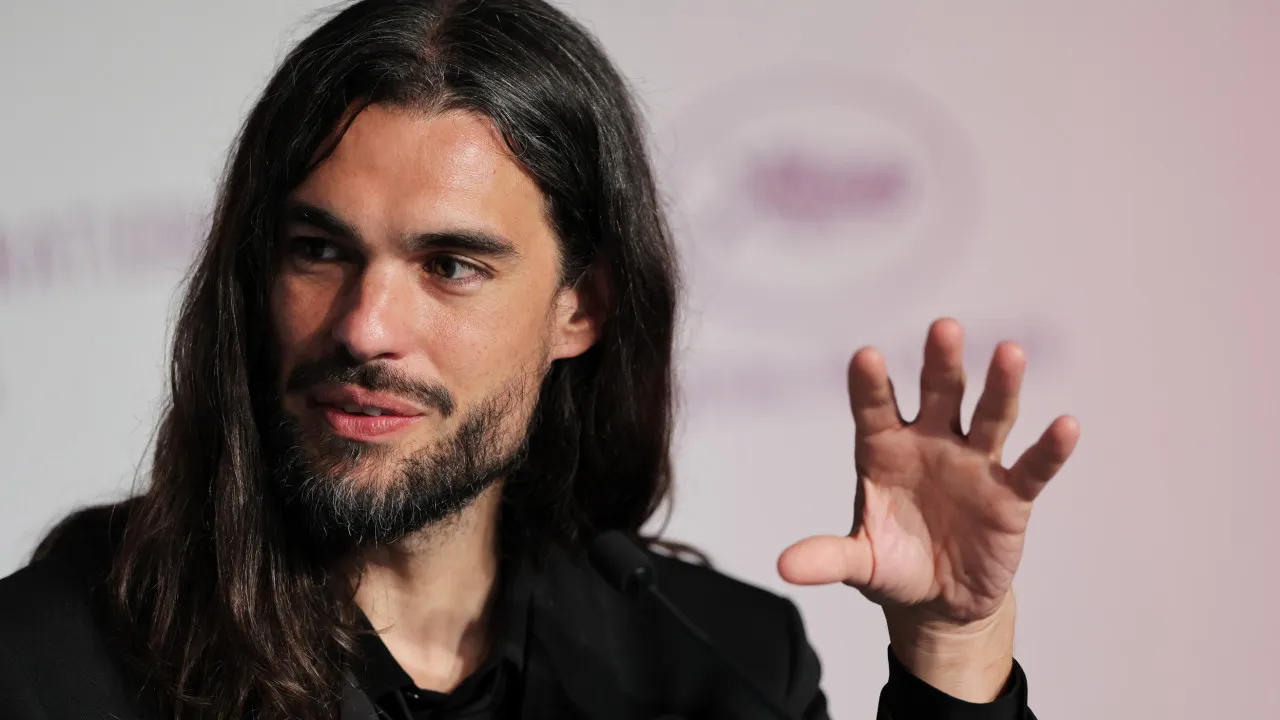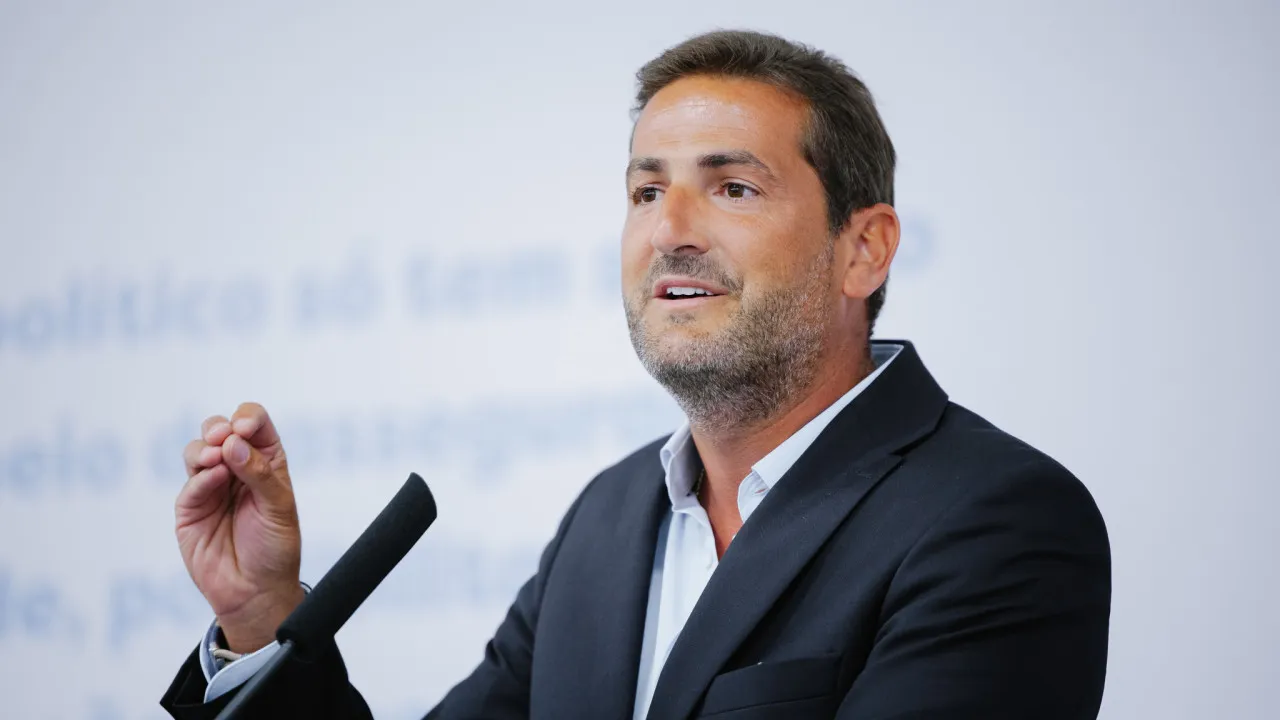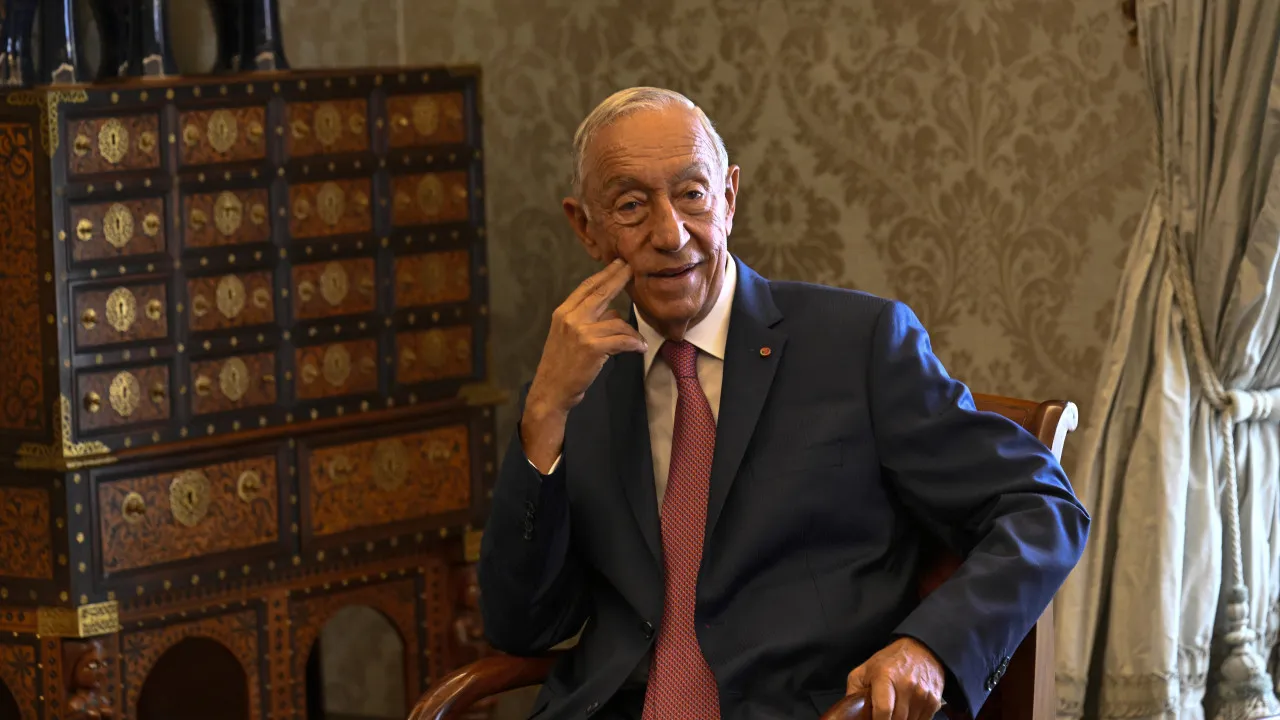
“The film [‘Sirat’] is dry, arid, sober. For me, it’s not so much about being luminous or optimistic, but rather whether we can provoke introspection in the viewer,” said the 43-year-old director in an interview.
At Cinema Trindade in Porto, where he presented several screenings of the film, awarded by the jury in the official section of the Cannes Film Festival, Laxe detailed the creative process that leads him to produce “extreme” works.
‘Sirat’, a successor to the equally Cannes-awarded ‘Fire Will Come’ (2019), follows the journey of a father and son searching for their daughter and sister, Mar, who went missing in a part of the Moroccan desert where electronic music raves proliferate.
Under this soundtrack, Laxe overlays images reflecting the aridity of the story itself, a journey he claims resembles epic narratives, such as the Epic of Gilgamesh or the quests of King Arthur in search of the Holy Grail.
In this desert festival, the dystopian idea of the end of the world clashes with a “harsh” story that, says the Paris-born Spaniard, aims to bring viewers “closer to themselves.”
“It’s a subtle way, the epic, to substitute the metaphysical. The epic adventure, the ‘western’, the genre, is my way of reaching certain audiences in a subtle manner, through the exterior epic and not the interior. […] I wanted the viewer to look inward. I knew I was making a tough film. My intention was to take care of the viewer. But I didn’t know it would stir so much, go so deep,” he explains.
He had no “desire to make anyone suffer,” because writing and editing the toughest sequences in the film was difficult, but he chose to ‘force’ that path to portray and criticize a “very thanatophobic society,” meaning an extreme fear of death.
“We escape death, pain, anguish. We have more fears. For me, it’s important to confront death, meditate on it. […] My life’s question is ‘will I die with dignity?’. And do the characters in this film die with dignity? I would say they do. In rave culture, there’s nothing more transcendental than to die in an act of service on the ‘dancefloor’,” he states.
For Óliver Laxe, “a film must transcend the author, surpass them,” and ‘Sirat’ embodies both hope and despair, as reflected in numerous critiques pointing the work towards an Oscar nomination.
“I intended more for hope. For realism, yes, but to continue the journey. Reality is tough, but we have faith that the path leads us to a good place. And there is a need to look inward,” he adds.
The confrontation and meditation on death strongly mark Laxe’s discourse and work, who doesn’t film for the cinema “to be understood, but felt,” and says he doesn’t grasp approaches more related to morality concerning these deaths on screen.
“But do you watch TV, what’s happening in the world today?” he challenges.
Deeply interested in and identified with rave culture, the Galician notes that, in this case, “it’s not for the party, but for the journey,” and even with “a toxic and escapist side, of Peter Pan, of not wanting to grow up,” as he observes, “in all dimensions of society,” he realizes that it can help deal better with the “wound” and internal resolution.
“I base myself on the premise that we are all wounded. Your friends are wounded and don’t know it. […] We Europeans have an idealized image of ourselves as balanced people. In Portugal, people are more grounded, humble, a society where life makes you humble,” he comments.
The image of purgatory, a “descent into hell” on the way to paradise, as the word ‘sirat’ symbolizes in Muslim religion, a path through hell to reach heaven, is another of the film’s strong associations.
“I’m interested in the mundane type, like many of us, who didn’t do the work in time, and life, when you don’t, forces you to do the work through crisis. That’s the mechanism of life,” he reflects.
In the film’s production, he read “many accounts of parents who lost their children.”
“The transmission of wisdom, the level of acceptance and detachment they experienced through the death of a child, something atrocious, unnamed, is something very noble and dignified. It’s an extreme thing to lose a child, but I believe it’s a good way to prepare ourselves, to be aware that we are always one step from the abyss, and we must meditate on death,” he says.
Alongside a more philosophical and existential reflection on cinema, the creative process is marked, at its origin, by being “addicted to the image.”
“I’m like a fisherman, they tell me there are fish over there, those fish being a new bank of images, and off we go. These images are alive, they penetrate you, they want to exist and capture you. We are at their mercy. […] I experience great delight in making certain images,” he explains.
Among these fascinations, filming in Porto, for example, would leave him “enchanted,” by the “architecture and succession of places,” says the director of ‘Sirat’, which premiered Thursday in Portugal, where the landscape assumes the role of a character in his filmography.
Laxe, 43, has been awarded in Cannes for all his films – in 2010, with the FIPRESCI Prize for ‘Todos vosotros sois capitanes’, in 2016 at Critics’ Week for ‘Mimosas’, and then by the Un certain regard jury for ‘Fire Will Come’, up to ‘Sirat’, now in the official section.




